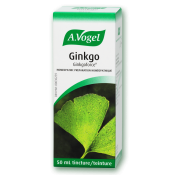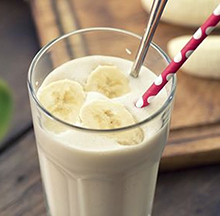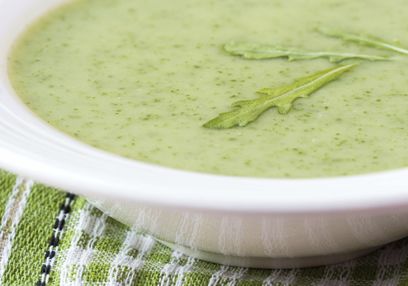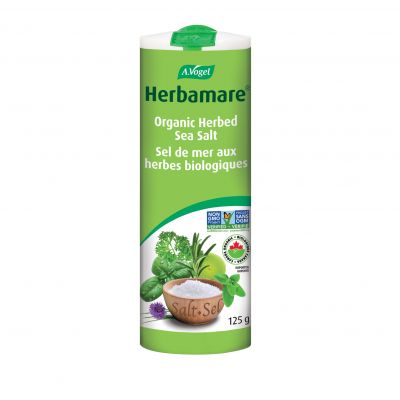What is the role of clinical nutrition in the lives of Canadians?
The research could not be timelier as looming over Canada is a shift in our national demographic as the baby boomers begin to transition out of the workforce en masse. With that shift comes a heightened focus on longevity and health optimization. We know that aging individuals are subject to changes, especially those of cognitive function and memory.
What kinds of conditions impact our loved one's memory?
It's thought that across caregivers and those affected by the disease, the annual cost to Canadians approaches $10.4 billion with over 1.1 million affected either directly or indirectly.
One of the earliest is known as mild cognitive impairment where there is memory loss, but it does not interfere with day-to-day activities. This may progress to Alzheimer's disease in about 10-15% of cases per year.
Alzheimer's is the most common form of the disease and is thought to impact over 500,000 Canadians with that number expected to rise to 937,000 by 2031.
Can poor nutrition worsen your risk of getting the disease? What about the outcome if you already live with it?
Absolutely. Nutrients are critical for the 37 thousand billion billion (you read that right) chemical reactions occurring in the body at any given point in time. Without the key vitamins and minerals, these reactions would stop functioning and leave you depleted, or dead. If key parts of a vehicle are missing, it becomes a recipe for disaster, much like in those battling disease or illness.
What kinds of foods help support my memory?
- Oily fish. These swimmers are high in essential omega-3 fatty acids and just 7 oz per week can support your memory long term.
- Turmeric. This powerful spice has been shown to have protective effects against a variety of chronic conditions including hypertension and hyperlipidemia. It has been shown to bond to the troublesome beta-amyloid plaques that are highly present in Alzheimer's disease. At 90mg a day, it can also support memory and mood due to its strong anti-inflammatory and anti-oxidant properties.
- Rosemary. In adults around 75, a half teaspoon of rosemary powder led to improvements in how quickly the participants could process information. This is about as much as you might use in a normal recipe. Before jumping on the, 'If a little helps, then more must be better' train, a tablespoon of rosemary powder actually impaired how quickly they could process information.
- Green tea. While the research is too early for a definitive answer, green tea has been shown to increase the connectivity between parts of the brain associated with working memory. With that in mind, it could be useful to add to your day-to-day routine.
- Nuts. While it has become more widely known that nuts are nutrition powerhouses, which ones benefit the brain? A type of omega-3 fatty acid known as DHA helps improve cognition in adults and prevent age-related decline. A quarter cup of walnuts can provide almost 100% of your recommended daily intake.
- Berries. These juicy delights are rich in compounds known as flavonoids and anthocyanins, especially the dark berries that include cherries, blackberries and blueberries. A study from 2014 found regular intake of these berries prevent age-related disease like Parkinson's and Alzheimer's', improve motor function, reduce inflammation and enhance the transmission of brain signals. In another study, daily intake of blueberry juice led to significant memory improvements after 12-weeks.
- Olive oil. This kitchen staple contains polyphenols that have been shown to reverse oxidative stress and any associated damage in the brains of mice. Even more interesting is a recent mice study showing extra-virgin olive oil actually stabilized the proteins that tangle in the brain of those afflicted by Alzheimer's disease.
- Oats. Our final food to consider has been studied in a randomized, double-blind, placebo-controlled, crossover trial to determine its impacts on cognitive performance in adults. Supplementation for a period of four weeks resulted in better working memory and performance.
What are some other steps I can take to support my memory?
- Exercise! The importance of movement and exercise in your life cannot be understated as a 2020 review showed that health-related quality of life and cognitive function were most closely associated with moderate-intensity physical activity. This was above and beyond very intense activities and walking, but at the end of the day, any movement is better than no movement.
- Herbal support. Certain herbs like ginkgo biloba can support blood flow in the brain due to compounds known as ginkgolides. Standardized extracts of the herb have been shown to benefit memory in those suffering from cognitive decline and various forms of dementia including vascular and Alzheimer's.
- Air quality. Presented to researchers at the recent Alzheimer's Association International Conference was the impact of air quality on cognitive function. Reducing pollutants in the air over 10 years, like those associated with traffic, led to a 26% reduced risk of dementia. Reduced exposure also slows cognitive decline, so purchasing an air purifier is an option. You can also avoid idling your vehicle and ensure cooking areas are well-ventilated.
If you've enjoyed this article, consider reading 8 Great Tips to Improve Short-Term Memory on our blog.
This article does not provide medical advice and is intended for informational purposes only. It is not a substitute for professional medical advice, diagnosis or treatment.
https://alz.org/aaic/releases_2021/air-pollution-dementia-risk.asp
https://alzheimer.ca/en/about-dementia/what-dementia/dementia-numbers-canada
https://alzheimer.ca/sites/default/files/documents/Prevalence-and-costs-of-dementia-in-Canada_Alzheimer-Society-Canada.pdf
https://www.canada.ca/en/public-health/services/publications/diseases-conditions/dementia-highlights-canadian-chronic-disease-surveillance.html#box1
https://erj.ersjournals.com/content/55/6/1902056
https://www.ncbi.nlm.nih.gov/pmc/articles/PMC4192974/
https://onlinelibrary.wiley.com/doi/full/10.1111/acel.13076
https://pubmed.ncbi.nlm.nih.gov/21877951/
https://pubmed.ncbi.nlm.nih.gov/24194552/
https://pubmed.ncbi.nlm.nih.gov/26268332/
https://pubmed.ncbi.nlm.nih.gov/26542489/
https://pubmed.ncbi.nlm.nih.gov/29246725/
https://pubmed.ncbi.nlm.nih.gov/29484360/
https://pubmed.ncbi.nlm.nih.gov/32767923/
https://pubmed.ncbi.nlm.nih.gov/32903212/
https://pubmed.ncbi.nlm.nih.gov/33381590/







